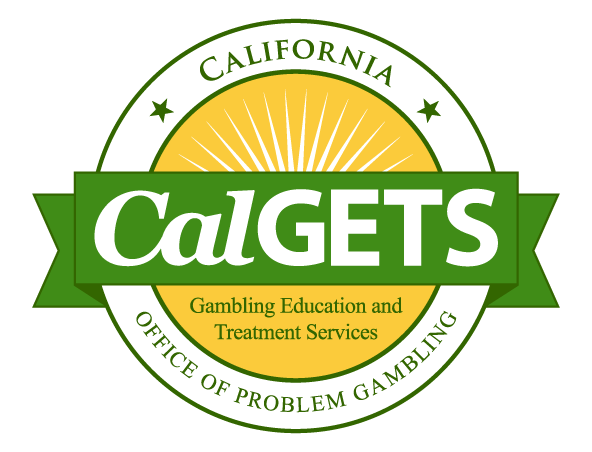|
|

Home
Adult Counseling
Child & Adolescent
Free Problem Gambling Help
EAP & Insurance
SAP
Forms
Directions

California Gambling Education and FREE Treatment Services






|
Child &
Adolescence
Is your
child having difficulty at school, home or with friends? Have your tried
talking to him or her and it just doesn't seem to help? Sometimes, kids are
also affected by emotional strains that need to be resolved through
counseling. Low self-esteem, depression, separation anxiety, poor school
performance, social isolation and shyness, and substance abuse -- are just
some of the issues that young people struggle with today. When not attended
to, these issues can have a disruptive impact on your child’s well-being and
ability to get along in daily life. Through counseling your child can work
through and resolve these difficulties so that he or she can get back on
track.
Low Self Esteem
Here are some signs
to watch for in determining if your child has low self-esteem: -
Negative
statements about themselves. For example, children may say, "I can't do
anything right." -
Lack of
self-confidence. -
Lack of
perseverance. Children with low self-esteem give up easily. -
Difficulty
accepting responsibility. -
Constant need
for reassurance. Children with low self-esteem need continuous guidance and
praise for their efforts. -
Anxiety in
social situations. Children feel inadequate and worry about not being liked. -
Frustration over their lack of achievement. Children may exhibit frustration
by being disagreeable and noncompliant.
Depression
Children do not
always exhibit depression in the same way as adults. While some children do
appear sad and tearful, others display depression through irritability,
misbehavior, and physical complaints. Here are some symptoms to determine if
your child is depressed: -
Sadness -
Loss of interest
in fun activities -
Feelings of guilt -
Low energy level -
Poor
concentration -
Loss of appetite -
Difficulty
sleeping -
Numerous physical
complaints such as headaches or stomach aches -
Acting helpless -
Making negative
comments about self -
Expressing
dissatisfaction with life
Seek immediate
professional assistance if your child makes comments about hurting
himself/herself or if your child is so depressed that he/she cannot meet the
usual demands of life.
Separation Anxiety
Children with
an separation anxiety may: -
Display an
unreasonable fear of school
-
Feel unsafe staying in a room by themselves -
Display clinging
behavior -
Display excessive
worry and fear about parents or about harm to themselves -
Shadow their mom
or dad around the house -
Have difficulty
going to sleep -
Have nightmares -
Have exaggerated,
unrealistic fears of animals, monsters, burglars -
Fear being
alone in the dark
-
Have severe tantrums when forced to go to school
Poor School
Performance
Common indicators of a child or
adolescent at risk for school failure may include:
-
Attention problems as a young child- the student has a school history of
attention issues or disruptive behavior
-
Multiple
retentions in grade level- the student has been retained one of more years
-
Absenteeism- the
student is absent five or more days per term
-
Lack of
connection with the school- the student is not involved is sports, music,
or other school-related extracurricular activities
-
Behavior
Problems- the student may be frequently disciplined or show a sudden change
in school behavior such as withdrawing from class discussions
-
Lack of
Confidence- the student believes that his or her own ability is
insufficient, and nothing can be done to change the situation
-
Limited goals for the
future- the student is unaware of career options available or lacks
motivation to pursue these goals
Social
Isolation and Shyness
Signs and
symptoms can include: -
Canceling
social events at the last moment
-
Avoiding situations that provide positive social interaction
-
Few or no friends
-
Avoidance of activities that are otherwise pleasurable
-
Passivity, pessimism and low self-esteem
-
Friends, family members, teachers, or mentors are concerned
-
Excessive computer use that is not social in nature and creates social
isolation
Substance Abuse
The following are
signs of possible substance abuse: -
Neglectful
of personal hygiene
-
Secretive
-
Frequent school absences or cutting class -
Unexplained
weight loss
-
Impulsive behaviors and lack of self control
-
Difficulty in school and declining grades
-
Physical symptoms: red eyes, dilated pupils, constricted pupils
-
Unhealthy lifestyle
-
Borrowing or stealing money
-
Frequent, volatile mood swings or explosive bouts of anger
-
Increased or unusual anxiety or nervousness
-
Isolation from family, friends or pets
|
|
Lisa
Montalvo, MFT, CEAP, SAP
1395 San Carlos Avenue, Suite C#4
San Carlos,
California 94070
Phone (650) 631-0909
Fax (518) 671-2884
LisaMontalvo@BayAreaCounselingService.com
[ Home ][ Adult Counseling ] [ Child & Adolescent ] [ Free Gambling Counseling ] [ EAP & Insurance ] [ SAP ] [ Forms ] [ Directions ]
Bay Area Counseling Service © 2003 | Privacy policy | Email: LisaMontalvo@BayAreaCounselingService.com
This web site created and maintained by Physician Website Designer www.PhysicianWebsiteDesigner.com innovative websites for health care professionals
|
|







